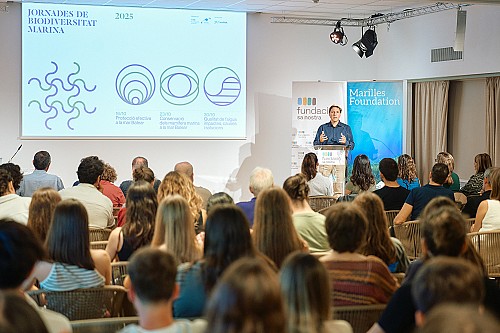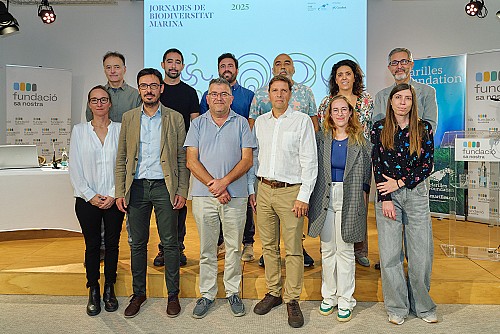As the political and academic year began a few days ago, it’s a good time to review the unfinished business we have in protecting the Balearic Sea.
The first and most important issue, on which the Balearic Islands government has failed, is that of integral reserves.
Only 1.7% of inland waters (under regional jurisdiction) are strictly protected, i.e., closed to fishing. These fishing reserves are investments in the future, fish factories for everyone. Scientific data and data from the Balearic government itself prove this. We know that in the area where fishing is not allowed in the Tagomago reserve, there is up to four times more fish than outside and twice as much fish as in the non-integral reserve area. The question we must ask ourselves is this: If integral reserves are the driving force behind marine regeneration, multiplying fishing resources and also protecting the biodiversity that inhabits them, why don't we have more of them?
Another pending issue is the effective surveillance of our sea and, specifically, of marine protected areas (MPAs). Despite the commitment of many inspectors and environmental agents, and the evidence that when a poacher or illegal fisher is caught, the authorities take action, as was the case a few days ago in Cala Rajada. The reality, however, is that with current resources we cannot carry out effective surveillance of our MPA.
This problem is particularly serious in Ibiza, where recreational poachers, mainly using spearfishing and rod and live bait, fish in marine reserves and sell the fish illegally to restaurants that are complicit in a practice that impoverishes us all. The code of silence regarding this issue makes it difficult to get rid of the bad apples in a sector where most enthusiasts comply with the regulations and want to continue enjoying their hobby.
In this regard, the island administrations of Menorca, Ibiza, and Formentera have failed. Perhaps they should consider returning fisheries surveillance powers to the Balearic government, given that they have so far shown little interest in exercising them properly. As for the Balearic executive, although it is taking steps in the right direction, it is not allocating the necessary resources to effectively monitor our MPAs. All protected natural areas and marine reserves, particularly natural and national parks, must have effective surveillance 24 hours a day, seven days a week.
Finally, there is a lack of funding. Public investment in marine conservation, i.e., in the natural infrastructure that supports parts of tourism, fishing, and sailing, is still negligible. Now that we are in the budget period, we will be able to see how far the public administrations' commitment to the Balearic Sea goes.
There are many other issues to be addressed. One is the development of management plans for MPAs, which the Balearic government has outsourced, making it more difficult for local actors to participate. Another is the need to improve research and knowledge of vulnerable habitats and species about which we know very little. We can also add the need to put a marine biodiversity monitoring programme in place. This was a cross-cutting theme of the 2024 Marine Biodiversity Conference; this year’s conference will take place on 16, 23, and 30 October.
We hope that these ‘students’ will wake up and that the 2025/2026 academic year will be more fruitful than previous ones.
Aniol Esteban - Director




